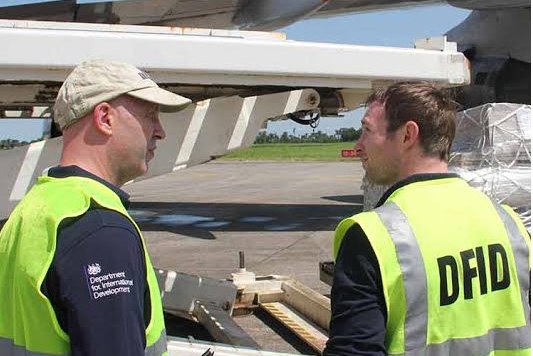dfid.jpg

DFID staff
Giving evidence to the House of Commons International Development Committee yesterday, Mark Lowcock, permanent secretary at DFID, tried to shrug off the substantial drop in the value of the pound since the June Brexit vote, noting that “currencies rise and fall over time”.
He later conceded: “It was a significant, sharp drop in a short period. Were this to be sustained, it would obviously make it more expensive for us to achieve things in [DFID’s] manifesto. We would have to adjust other things as a result.”
Lowcock explained that DFID only pays around 7% of its bills in foreign currency, so the department’s direct exposure to foreign currency risk is low.
However, the currency’s depreciation means that the department’s pounds are worth less overseas, and goods become more expensive.
“What we can buy with the pound in lots of countries is reduced. That means the cost of achieving the goal to provide better water and sanitation to 60 million people [for example], potentially that could get a bit higher,” Lowcock told the MPs.
He reassured the committee those costs would be factored into the department’s budget allocations.
But Lowcock also said that, if the government opts to stop contributing to EU aid programmes, Brexit will also free up more money for the department. Leaving the EU could also open up opportunities for trade relationships with developing countries, he added.
Priti Patel, the UK’s new secretary of state for international development, who has in the past been a vocal critic of UK aid, has advocated a renewed focus on trade since taking the post earlier this year.
To the relief of many in the development community, any attempt by Patel to return to ‘tied aid’ – aid given in return for trade deals – is prevented by law.
A string of comments by Patel, made both before and after she took up the UK’s top aid job, have sparked fears about the future direction of UK aid. These have included suggestions that DFID should be abolished and that aid is being wasted.
Many were concerned she might attempt to backtrack on the UK’s commitment to spend 0.7% of its income on national aid annually. Lowcock reiterated to MPs again yesterday that this was not the case.
Rather, he said that Patel has stressed the department should have zero tolerance for low quality spend and ensure funds are directed to effective, equality projects.













